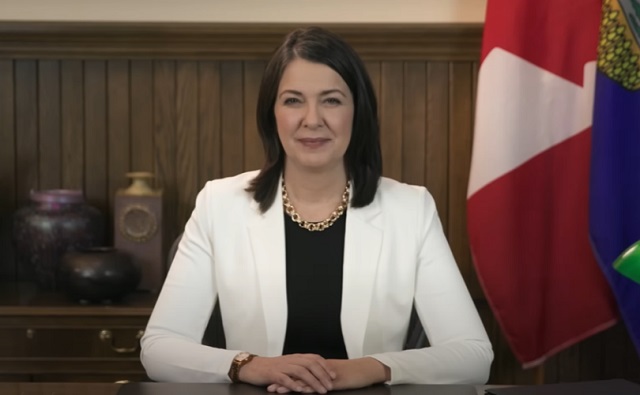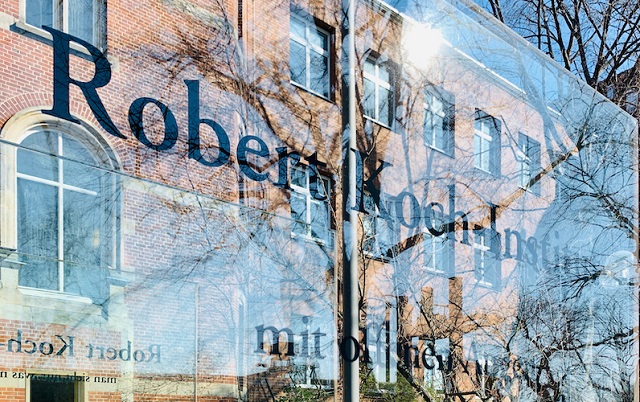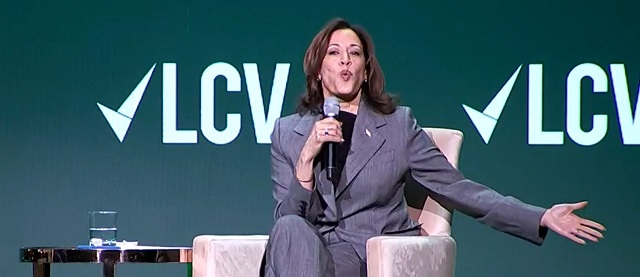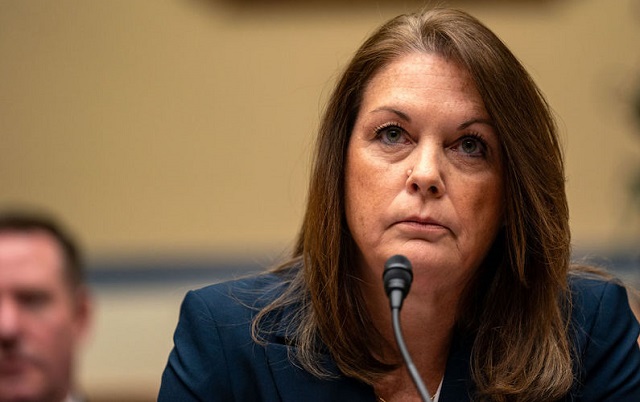Alberta
Danielle Smith warns Trudeau gov’t she’s going ahead with natural gas projects despite regulations

From LifeSiteNews
‘We’re not going to sit and wait while they break the law, drag their feet, make us take them to court, spend years creating economic uncertainty for our investors’
After Environment Minister Steven Guilbeault brushed off Alberta Premier Danielle Smith’s invocation of the “Sovereignty Act” as being merely “symbolic,” the Alberta leader warned him that her province will be building new gas-fired power plants regardless of his new “clean energy” rules.
“Well, he [Guilbeault] will learn that if he does not back down from his outrageous and unconstitutional targets of 2035, it’ll be more than symbolic,” said Smith Tuesday after being asked by a reporter about Guilbeault’s comments.
“We’ll proceed with developing our baseload power on natural gas with the best available technology.”
Smith said that the use of the Sovereignty Act, which was invoked on Monday for the purpose of shielding Alberta from future power blackouts due to federal government overreach, will help the province “make sure that we are able to shield any corporation from any kind of criminal liability.”
“Whether that means that we have to de-risk it by being the generator of last resort or we have to purchase some of those plants so that we operate them ourselves, so that we’re able to continue on with having a reliable power grid,” she said.
The Sovereignty Act resolution calls on Alberta’s cabinet to “order all provincial entities not to recognize the constitutional validity of, enforce, nor cooperate in the implementation of the CERs [Clean Electricity Regulations] in any manner, to the extent legally permissible.”
Guilbeault on Monday came out with a statement concerning Alberta’s invocation of the Sovereignty Act, claiming that its use will “create fear and uncertainty over collaboration and positive results for Albertans.”
He also later claimed while speaking to reporters that Smith’s action using the Sovereignty Act is just “symbolic.”
After announcing Monday that she has had “enough” of Prime Minister Justin Trudeau’s extreme environmental rules, Smith said her province has no choice but to assert control over its electricity grid to combat federal overreach.
Unlike most provinces in Canada, Alberta’s electricity industry is nearly fully deregulated. However, the government still has the ability to take control of it at a moment’s notice.
A draft version of the federal government’s CERs introduced by Guilbeault projects billions in higher costs associated with a so-called “green” power transition, especially in the resource-rich provinces of Alberta, Saskatchewan, New Brunswick, and Nova Scotia, which use natural gas and coal to fuel power plants.
Business executives in Alberta’s energy sector have also sounded the alarm over the Trudeau government’s “green” transition, saying it could lead to unreliability in the power grid.
‘We’re not going to sit and wait while they break the law’
While speaking to reporters Tuesday, Smith noted how Alberta will proceed with ensuring its power grid is stable and secure, and that the province will not “sit and wait” around for the Trudeau government to continue breaking “the law.”
“So, there’s this is just the indication that we’re moving on this. We’re not going to sit and wait while they break the law, drag their feet, make us take them to court, spend years creating economic uncertainty for our investors,” said Smith.
“We’re going to start commissioning those plants now because we need them now.”
The Smith government said that while it does not like the route of taking back power production under state control, it says this is the only way the province can keep the current Liberal government, or any other future government, from interfering in provincial power production.
Two recent court rulings dealt a serious blow to the Trudeau government’s environmental activism via legislation. The most recent was when the Federal Court of Canada on November 16, 2023, overturned the Trudeau government’s ban on single-use plastic, calling it “unreasonable and unconstitutional.”
The Federal Court ruled in favor of the provinces of Alberta and Saskatchewan by stating that Trudeau’s government had overstepped its authority by classifying plastic as “toxic” as well as banning all single-use plastic items, like straws, bags, and eating utensils.
The second victory for Alberta and Saskatchewan concerns a Supreme Court ruling that stated that Trudeau’s law, C-69, dubbed the “no-more pipelines” bill, is “mostly unconstitutional.” The decision returned authority over the pipelines to provincial governments, meaning oil and gas projects headed up by the provinces should be allowed to proceed without federal intrusion.
The Sovereignty Act resolution calls on Alberta’s cabinet to “order all provincial entities not to recognize the constitutional validity of, enforce, nor cooperate in the implementation of the CERs in any manner, to the extent legally permissible.”
It also orders that the province investigate the “feasibility of establishing a provincial Crown corporation for the purpose of bringing and maintaining more reliable and affordable electricity onto the grid in the event that private generators find it too risky to do so under the CERs.”
The Trudeau government’s current environmental goals – in lockstep with the United Nations’ “2030 Agenda for Sustainable Development” – include phasing out coal-fired power plants, reducing fertilizer usage, and curbing natural gas use over the coming decades.
The reduction and eventual elimination of the use of so-called “fossil fuels” and a transition to unreliable “green” energy has also been pushed by the World Economic Forum (WEF) – the globalist group behind the socialist “Great Reset” agenda – an organization in which Trudeau and some of his cabinet are involved.
Alberta
Alberta awash in corporate welfare

From the Fraser Institute
By Matthew Lau
To understand Ottawa’s negative impact on Alberta’s economy and living standards, juxtapose two recent pieces of data.
First, in July the Trudeau government made three separate “economic development” spending announcements in Alberta, totalling more than $80 million and affecting 37 different projects related to the “green economy,” clean technology and agriculture. And second, as noted in a new essay by Fraser Institute senior fellow Kenneth Green, inflation-adjusted business investment (excluding residential structures) in Canada’s extraction sector (mining, quarrying, oil and gas) fell 51.2 per cent from 2014 to 2022.
The productivity gains that raise living standards and improve economic conditions rely on business investment. But business investment in Canada has declined over the past decade and total economic growth per person (inflation-adjusted) from Q3-2015 through to Q1-2024 has been less than 1 per cent versus robust growth of nearly 16 per cent in the United States over the same period.
For Canada’s extraction sector, as Green documents, federal policies—new fuel regulations, extended review processes on major infrastructure projects, an effective ban on oil shipments on British Columbia’s northern coast, a hard greenhouse gas emissions cap targeting oil and gas, and other regulatory initiatives—are largely to blame for the massive decline in investment.
Meanwhile, as Ottawa impedes private investment, its latest bundle of economic development announcements underscores its strategy to have government take the lead in allocating economic resources, whether for infrastructure and public institutions or for corporate welfare to private companies.
Consider these federally-subsidized projects.
A gas cloud imaging company received $4.1 million from taxpayers to expand marketing, operations and product development. The Battery Metals Association of Canada received $850,000 to “support growth of the battery metals sector in Western Canada by enhancing collaboration and education stakeholders.” A food manufacturer in Lethbridge received $5.2 million to increase production of plant-based protein products. Ermineskin Cree Nation received nearly $400,000 for a feasibility study for a new solar farm. The Town of Coronation received almost $900,000 to renovate and retrofit two buildings into a business incubator. The Petroleum Technology Alliance Canada received $400,000 for marketing and other support to help boost clean technology product exports. And so on.
When the Trudeau government announced all this corporate welfare and spending, it naturally claimed it create economic growth and good jobs. But corporate welfare doesn’t create growth and good jobs, it only directs resources (including labour) to subsidized sectors and businesses and away from sectors and businesses that must be more heavily taxed to support the subsidies. The effect of government initiatives that reduce private investment and replace it with government spending is a net economic loss.
As 20th-century business and economics journalist Henry Hazlitt put it, the case for government directing investment (instead of the private sector) relies on politicians and bureaucrats—who did not earn the money and to whom the money does not belong—investing that money wisely and with almost perfect foresight. Of course, that’s preposterous.
Alas, this replacement of private-sector investment with public spending is happening not only in Alberta but across Canada today due to the Trudeau government’s fiscal policies. Lower productivity and lower living standards, the data show, are the unhappy results.
Author:
Alberta
‘Fireworks’ As Defence Opens Case In Coutts Two Trial

From the Frontier Centre for Public Policy
By Ray McGinnis
Anthony Olienick and Chris Carbert are on trial for conspiracy to commit murder and firearms charges in relation to the Coutts Blockade into mid-February 2022. In opening her case before a Lethbridge, AB, jury on July 11, Olienick’s lawyer, Marilyn Burns stated “This is a political, criminal trial that is un Canadian.” She told the jury, “You will be shocked, and at the very least, disappointed with how Canada’s own RCMP conducted themselves during and after the Coutts protest,” as she summarized officers’ testimony during presentation of the Crown’s case. Burns also contended that “the conduct of Alberta’s provincial government and Canada’s federal government are entwined with the RCMP.” The arrests of the Coutts Four on the night of February 13 and noon hour of February 14, were key events in a decision by the Clerk of the Privy Council, Janice Charette, and the National Security Advisor to the Prime Minister, Jody Thomas, to advise Prime Minister Justin Trudeau to invoke the Emergencies Act. Chief Justice Paul Rouleau, in submitting his Public Order Emergency Commission Report to Parliament on February 17, 2023, also cited events at the Coutts Blockade as key to his conclusion that the government was justified in invoking the Emergencies Act.
Justice David Labrenz cautioned attorney Burns regarding her language, after Crown prosecutor Stephen Johnson objected to some of the language in the opening statement of Olienick’s counsel. Futher discussion about the appropriateness of attorney Burns’ statement to the jury is behind a publication ban, as discussions occurred without the jury present.
Justice Labrenz told the jury on July 12, “I would remind you that the presumption of innocence means that both the accused are cloaked with that presumption, unless the Crown proves beyond a reasonable doubt the essential elements of the charge(s).” He further clarified what should result if the jurors were uncertain about which narrative to believe: the account by the Crown, or the account from the accused lawyers. Labrenz stated that such ambivalence must lead to an acquittal; As such a degree of uncertainty regarding which case to trust in does not meet the “beyond a reasonable doubt” threshold for a conviction.”
On July 15, 2024, a Lethbridge jury heard evidence from a former employer of Olienicks’ named Brian Lambert. He stated that he had tasked Olienick run his sandstone quarry and mining business. He was a business partner with Olienick. In that capacity, Olienick made use of what Lambert referred to as “little firecrackers,” to quarry the sandstone and reduce it in size. Reducing the size of the stone renders it manageable to get refined and repurposed so it could be sold to buyers of stone for other uses (building construction, patio stones, etc.) Lambert explained that the “firecrackers” were “explosive devices” packaged within tubing and pipes that could also be used for plumbing. He detailed how “You make them out of ordinary plumbing pipe and use some kind of propellant like shotgun powder…” Lambert explained that the length of the pipe “…depended on how big a hole or how large a piece of stone you were going to crack. The one I saw was about six inches long … maybe an inch in diameter.”
One of Olienick’s charges is “unlawful possession of an explosive device for a dangerous purpose.” The principal evidence offered up by RCMP to the Crown is what the officers depicted as “pipe bombs” which they obtained at the residence of Anthony Olienick in Claresholm, Alberta, about a two-hour drive from Coutts. Officers entered his home after he was arrested the night of February 13, 2022. Lambert’s testimony offers a plausible common use for the “firecrackers” the RCMP referred to as “pipe bombs.” Lambert added, these “firecrackers” have a firecracker fuse, and in the world of “explosive” they are “no big deal.”
Fellow accused, Chris Carbert, is does not face the additional charge of unlawful possession of explosives for a dangerous purpose. This is the first full week of the case for the defence. The trial began on June 6 when the Crown began presenting its case.
Ray McGinnis is a Senior Fellow with the Frontier Centre for Public Policy who recently attended several days of testimony at the Coutts Two trial.
-

 National1 day ago
National1 day agoLiberals offer no response as Conservative MP calls Trudeau a ‘liar’ for an hour straight
-

 COVID-191 day ago
COVID-191 day agoLeaked documents: German gov’t lied about shots preventing COVID, knew lockdowns did more harm than good
-

 Economy1 day ago
Economy1 day agoKamala Harris’ Energy Policy Catalog Is Full Of Whoppers
-

 International1 day ago
International1 day agoSwitzerland’s new portable suicide ‘pod’ set to claim its first life ‘soon’
-

 Business1 day ago
Business1 day agoFederal government seems committed to killing investment in Canada
-

 International19 hours ago
International19 hours agoHouse Passes Bipartisan Resolution Establishing Trump Assassination Attempt Task Force
-

 Crime9 hours ago
Crime9 hours agoEverything you need to know about the failed assassination attempt of Donald Trump
-

 Alberta1 day ago
Alberta1 day ago‘Fireworks’ As Defence Opens Case In Coutts Two Trial






